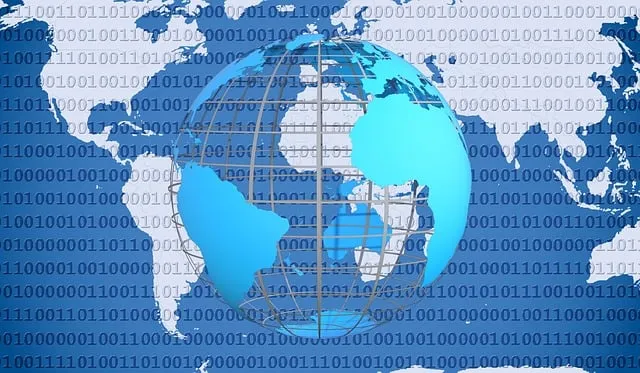In investigative journalism, Confidential Computing is a vital tool for cybersecurity experts assisting journalists to uncover corruption while protecting anonymous sources and preserving public trust. This technology employs advanced encryption like homomorphic encryption and zero-knowledge proofs to enable secure data analysis without revealing sensitive information or compromising source confidentiality. The partnership between journalists and cybersecurity experts, facilitated by Confidential Computing, strengthens the fight against corruption through robust communication protocols and careful ethical navigation.
In the intricate dance between investigative journalism and corruption exposure, anonymity is a vital tool. Journalists risk personal safety and source confidentiality when digging into illicit activities. This article explores how Confidential Computing strengthens the arsenal of cybersecurity experts, enabling them to facilitate anonymous searches while protecting journalists’ sources. We delve into strategies for secure search protocols, emphasizing the collaborative efforts needed between journalists and tech specialists to safeguard sensitive investigations.
- Understanding the Need for Anonymity in Investigative Journalism
- The Role of Confidential Computing in Safeguarding Sources
- Implementing Secure Search Protocols for Corruption Investigations
- Collaboration and Ethical Considerations for Cybersecurity Experts
Understanding the Need for Anonymity in Investigative Journalism

In the realm of investigative journalism, uncovering and exposing corruption is a delicate and often dangerous task. Journalists play a crucial role in holding powerful individuals and organizations accountable, but they face significant risks when delving into sensitive topics like bribery, fraud, or political scandals. Here’s where the concept of anonymity becomes indispensable.
Anonymizing search tools and techniques enable journalists to protect their identities while gathering critical information. In today’s digital era, where data is a potent weapon, Confidential Computing for Cybersecurity Experts is increasingly vital. By employing these advanced methods, journalists can navigate complex networks, access hidden databases, and collect evidence without revealing their source or method. This secrecy is essential to ensure the safety of both the journalist and their sources, fostering an environment where truth-seekers can operate freely and effectively, even in the face of potential backlash.
The Role of Confidential Computing in Safeguarding Sources

In the realm of investigative journalism, uncovering and reporting on corruption requires a delicate balance between seeking truth and ensuring source protection. This is where Confidential Computing steps in as a game-changer for cybersecurity experts needed in this field. By enabling secure data processing and analysis while keeping information confidential, it safeguards sensitive sources and facilitates anonymous reporting.
Confidential Computing employs advanced techniques like homomorphic encryption and zero-knowledge proofs to process data without revealing its contents. This means that journalists can analyze and derive insights from data received from anonymous sources without ever exposing their identities or the source’s confidentiality. Such innovative solutions are pivotal for maintaining trust between journalists, sources, and the public, fostering a robust system of transparent yet secure information exchange.
Implementing Secure Search Protocols for Corruption Investigations

In the pursuit of uncovering corruption, journalists often find themselves at risk, facing threats and potential retaliation from powerful entities. To safeguard their investigations, implementing secure search protocols is paramount. Confidential computing offers a promising solution, ensuring data remains private and protected throughout the analysis process. By employing advanced encryption techniques, this approach preserves the confidentiality of both the investigative material and the sources involved.
For cybersecurity experts, this presents a unique challenge: designing robust systems that can facilitate anonymous searches while maintaining data integrity. The goal is to create an environment where journalists can query sensitive information without compromising their identity or the source’s security. This requires a combination of cutting-edge technologies, including homomorphic encryption and secure multi-party computation, enabling complex analyses on encrypted data without ever decrypting it.
Collaboration and Ethical Considerations for Cybersecurity Experts

In the realm of investigating corruption, collaboration among journalists and cybersecurity experts is a game-changer. These professionals often share a common goal: exposing truth while protecting sources and sensitive data. Confidential computing for cybersecurity experts plays a pivotal role in facilitating this collaboration by enabling secure data sharing and analysis without compromising privacy.
When handling sensitive information, ethical considerations are paramount. Cybersecurity experts must navigate the fine line between assisting journalists in their quest for transparency and upholding strict confidentiality. Trust, mutual understanding, and clear communication protocols are essential to ensure that confidential computing methods enhance collaboration while maintaining the integrity of the investigative process.
Anonymizing search tools are indispensable for journalists tackling corruption, ensuring source protection and fostering a culture of transparency. By leveraging confidential computing and secure search protocols, investigative journalists can navigate complex data landscapes while maintaining ethical standards. Collaboration between journalists, cybersecurity experts, and technology providers is crucial to developing robust solutions that safeguard anonymity and support impactful investigative work in the digital age. The integration of these practices strengthens the fight against corruption, encouraging public scrutiny and accountability.
